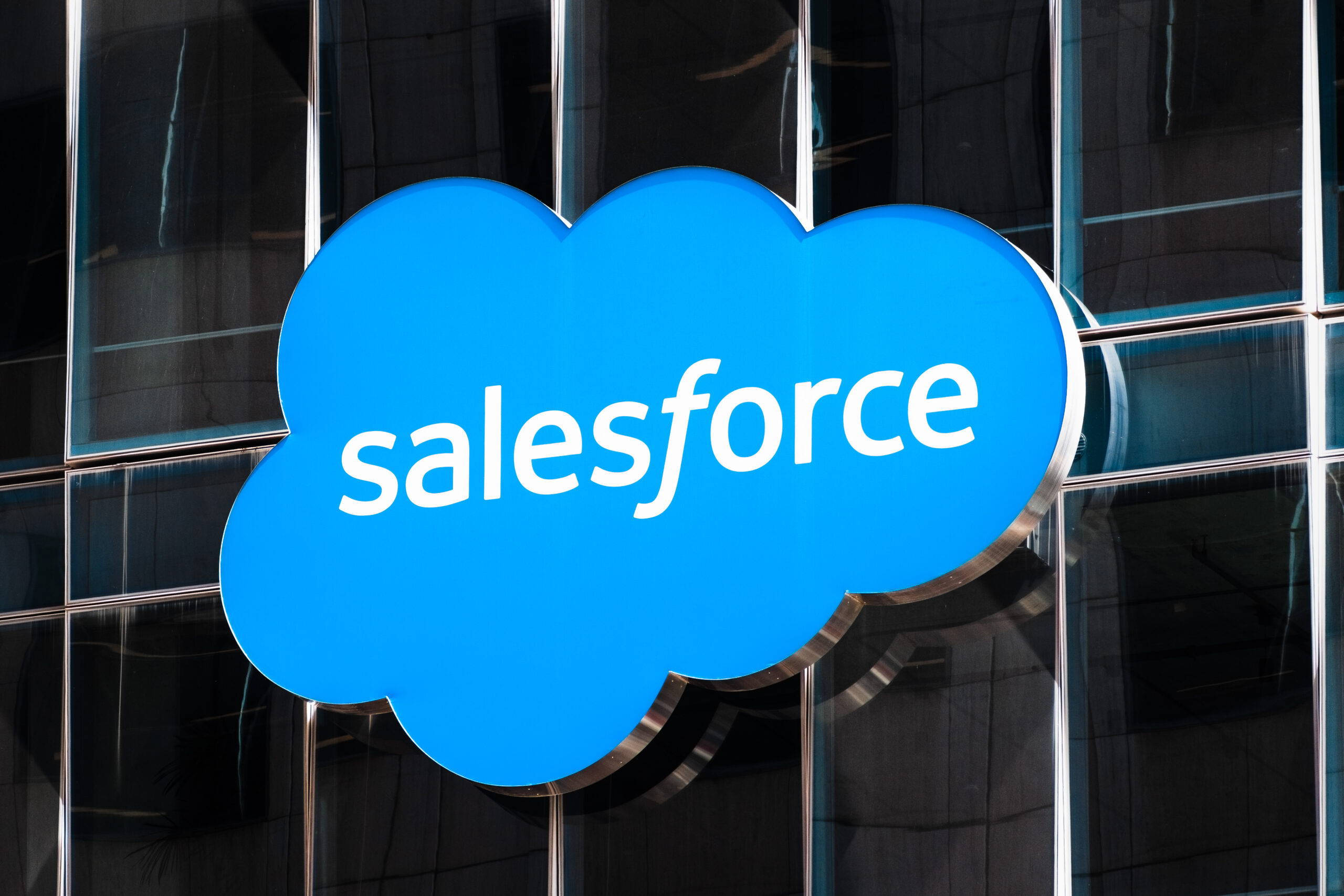Why Salesforce is growing fast in auto retail
Salesforce is coming to disrupt the software side of the car industry. But what is it and who’s using it? Here’s our explainer

25 August 2022
SHARE
Salesforce is set to shake up automotive retail, with many industry leaders predicting it is going to transform software and CRM technology.
What is Salesforce?
Salesforce is the world’s number 1 CRM. It is a cloud-based service (hence the logo) based in San Francisco. It was founded in 1999. The company says it is a single, fully-integrated CRM platform that gives all departments – including marketing, sales, commerce and service – a single, shared view of every customer. Its Customer 360 integrated CRM platform also powers an entire suite of connected modules, “for every phase of your customer’s journey, from lead to loyalty”.
The so-called Salesforce economy is set to skyrocket: it is projected to create 9 million jobs by 2026, and $1.6trn (yes, trillion…) in new business revenue. The Salesforce partner ecosystem will gain $6.19 for every $1 Salesforce makes by 2026.
Why is it gaining traction in auto retail?
Salesforce is seen by OEMs as a way to modernise and standardise their systems at scale. “Current OEM systems relating to retail are poor,” said MHA’s Alistair Cassels. “They haven’t been invested in for decades. They just about work for the wholesale model, but if OEMs are to take this over [in the move to agency], they need far more sophisticated systems. Many are already undertaking significant spending in systems overhauls.”
Traditionally, OEMs have been happy to let retailers handle CRM systems, which often have developed in a piecemeal way. The move to agency will see OEMs take over many or all aspects of the buying process, which is why they are investing in tools such as Salesforce. “Almost every OEM in the world is talking to Salesforce,” said CitNOW’s Alistair Horsburgh. His company is an accredited Salesforce Partner.
What does Salesforce do better?
Most retailers operate myriad systems and databases, which makes operations such as lead capture and tracking clunky and inefficient. Software is often outdated and prohibits collaboration, multiple databases make it hard to effectively serve customers, and spreadsheet overload causes headaches.
Salesforce provides a centralised system, with all data in one place. It helps retailers identify and prioritise enquiries, improves online ordering, streamlines communication and increases conversion rates.
What new skills will my retailer need?
The role of Salesforce administrator will become increasingly important. Retailers will need to employ qualified Salesforce Certified Administrators in their digital and IT departments, to build their Salesforce competency. They will need to look for specific business development experience in core Salesforce products such as Marketing, Sales and Experience Cloud, as well as the overall product itself. Salesforce credentials are increasingly being considered a competitive edge with many now highlighting their Certification credentials on their CVs and on LinkedIn.
Why may GDPR be a challenge?
Alistair believes the real reason OEMs are moving to agency is to own the customer data. Salesforce enables them to achieve this. “But in reality, retailers need permission to communicate, for service, for recalls – and how these contact permissions are handled will be a real problem. The question of who owns the customer, and which contact preferences are issued to whom, is going to be crucial, believes Alistair: it will determine who is allowed to contact them. “The devil will be in the detail.”
For its part, Mercedes-Benz says that “privacy and data protection play a very important role… the decision about which data to share and which service to use always lies with the customer”.
Are any retailers already using Salesforce?
Several retailers are already using Salesforce. H.R. Owen turned to automation consultancy Tquila to overcome a lack of investment in CRM technology and build a bespoke Salesforce Sales Cloud deployment. The retailer said key benefits include a single source of information across multiple dealerships, easy access to in-depth reporting, increased efficiency across the sales team – “and no more spreadsheets!”.
Lookers announced earlier this year it is embarking on a “sales transformation programme” in partnership with Salesforce. It will incur an implementation cost of £6m in 2022-23. The retailer says it will deliver a seamless omnichannel experience, full partner integration, and is a “significant cost reduction and efficiency opportunity”. Once complete, Lookers will enjoy “materially improved CRM, data analytics and AI”.
Which OEMs are using Salesforce?
It’s safe to say most OEMs are considering implementing Salesforce. Here are two brands that have already successfully switched on.
Volvo
Over the past three years, Volvo has transformed its digital operations, using Salesforce tools including Sales Cloud, Service Cloud, Marketing Cloud, Experience Cloud and Configure, Price, Quote (CPQ) modules. It has been supported by Capgemini during this process. “Salesforce provides speed and efficiency in implementation, as well as adding value to our markets and our dealer partners,” said head of operations Keith Schafer. Salesforce has streamlined customer journeys, and provided a platform for regional teams and retail partners to collaborate effectively.
Mercedes-Benz
Mercedes-Benz is using a suite of Salesforce tools as part of the digitisation of its brand (and in preparation for its shift to agency). The company wants to get its retailers onto a single CRM, utilising the Salesforce Experience Cloud to bridge the gap between online and offline. When a customer visits a dealer – and the firm says 70% of purchasing decisions are still driven by the retailer experience – salespeople will be able to look in the CRM for a detailed engagement marketing picture of what that customer has viewed online, even the click-through rate of emails and areas they showed particular engagement with.
The company will use Salesforce’ Trailhead online learning platform to demonstrate the technology to retailers.
… and one that’s switched off
Tesla
Tesla has sold direct to consumers for years. While it’s also used Salesforce for years, in 2019 it decided to develop its own proprietary CRM. This “aligns with its desire for vertical integration and continues a trend towards making its own software for internal functions rather than using third-party systems,” said an insider: the company owns its data without any external interference. Tech giants such as Apple, Amazona and Uber are other companies that use their own custom-built CRM.


